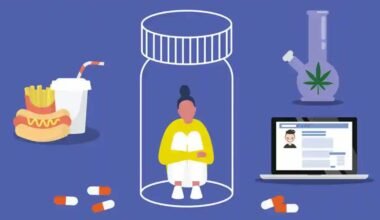There is a connection between physical and mental well-being. There are numerous proven correlations between chronic physical illnesses and mental health issues, which hurt people’s quality of life, increase the need for medical treatment, and have an influence on society.
How Does Physical Health Affect Mental Health?
The intricate relationship between physiological health and psychological well-being encompassed the interplay between estrogen and dopamine. Among its many other roles in the brain, dopamine, or the “happiness hormone,” is linked to motivation and reward. Like several antipsychotic drugs, estrogen inhibits the transmission of dopamine. Some people are more susceptible to psychosis after giving birth when their estrogen levels decrease sharply.
That may exacerbate symptoms for those who have ADHD. On the other hand, that may alleviate psychotic symptoms in those with bipolar illness or other disorders involving psychosis.
How does mental health affect physical health?
It seems logical that mental illness can have an impact on one’s physical health because our bodies and minds are intertwined. Anxiety, for instance, might result in an upset stomach, while depression can cause headaches, exhaustion, and digestive issues. Insomnia, agitation, and trouble focusing are some more symptoms.
Mental health issues are also caused by addiction to drugs and alcohol. Addiction affects both mental health and physical health. Individuals suffering from stress daily start to engage with alcohol, thinking that this will help them lessen their problem but contrary to that, it creates addiction and worsens their challenges. If someone is struggling with addiction, they need to work on both their mental health and their physical health. Renaissance Recovery which gives Effective addiction treatment can be your lifesaver. Every stage of addiction treatment, from detox to aftercare, is vital. Through their planned programs, they provide complete care, guaranteeing a smooth and successful recovery process.
Suggestions for Preserving Physical and Mental Well-being
Eat a Healthy, Balanced Diet
One of the biggest risk factors for disease is diet, but changing one’s diet can also be one of the most difficult lifestyle decisions.
Regarding what foods you should and shouldn’t eat, there is a tonne of contradicting advice available. Additionally, many diet programs are required to measure the amount of macro and micronutrient intake. This is impossible in the long run. Simply adhere to a few fundamental nutrition guidelines and don’t worry, rather than attempting to follow any optimized diet plan or determining which trendy superfood you should be eating.
Make Time to Remain Silent and do nothing
It’s critical to keep in mind that stress plays a significant role in the negative relationships between physical and mental health. Finding time to stop worrying about whether you’re eating the proper things, exercising enough, or producing enough work should be a part of your recovery process.
Spend a few minutes every day sitting down, free from all distractions (TV, phone, etc.), and simply being. Observe your current location and your feelings. And that’s it. Ignore what you should be feeling or doing at this moment. Don’t think about what you have to do after this. Take a little break; if you have the time, try to stay for 40–45 minutes.
Exercise
Engaging in physical activity can help you maintain your physical health and enhance your mental quality of life. Exercise has been shown to release endorphins, which are happy chemicals, into the brain. Walking briskly for even ten minutes can boost your mood, energy level, and mental clarity.
Refrain from using drugs and alcohol
While there may be a temporary high associated with drinking and smoking, these behaviors can have detrimental effects on your physical and mental well-being.
Sleep properly
You can determine the quality of your sleep by checking how well you slept. Not only is the time duration important, but so is how rejuvenating and peaceful your sleep is. Getting enough sleep is essential for maintaining emotional and cognitive wellness as well as one’s physical health.
Conclusion
General well-being must prioritize both physical and mental health. Developing self-care routines, getting enough sleep, and learning relaxation methods are all steps towards better mental health. Increasing physical health simultaneously requires controlling screen time, promoting regular exercise, teaching appropriate dietary habits, and abstaining from drugs and alcohol. A comprehensive strategy that includes mental and physical aspects of can facilitate a happier and more satisfying existence.







